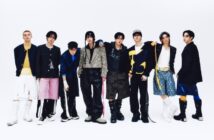rac·ism
|
Noun
|
It isn’t surprising to hear racism-related stories cropping up often in the media. In fact, we are so used to hearing them nowadays that ‘racism’ as a concept has become a common part of our modern day society; we’ve accepted the fact that it exists. Even those of us who disagree with racism entirely have somewhat ‘racist’ attributes. We may not show outward displays of aggression to races different to our own, however – and don’t deny it – race is something we register when seeing somebody for the first time. Whether you’re passing a stranger in the street or being introduced to somebody new, we sub-consciously take note of the individual’s race if they are of a different race to ourselves – no matter if we intend to or not. It isn’t that we have the specific thought of, “That person is…”, it’s not even malicious, but each and every one of us are guilty of the same crime. Though, can it be described as a crime that we are guilty of? It is a sad thought that this thought process might just be built within us. Lisa Griggs, graphic designer at UnitedKpop, summed this up by saying, “People look at race before they look at people.” And, sadly, it’s true.
Even some of my nicest, most wholesome friends (the kind who like to play their mandolins together and have lengthy discussions about the future of Catholicism – don’t they sound enthralling..?) crack the odd racist joke, often loosely related to Hitler and the second World War. Alongside this, there are those who like to throw friendly insults about the ‘jap-pop’ on my iPod. (I mean, seriously? Jap-pop..? It’s not even Japanese! The clue is in the name. K-pop. K. Korean. Korean pop.) They’re not trying to be racist, they probably don’t even think the terms they’re using are derogatory. Those who do will label it as ‘just a joke’. But is it really funny? My apologies for not laughing, but in all honesty, your jokes about the death of six million Jews just don’t do the trick for me. We really don’t need to make a joke out of some topics, the line needs to be drawn somewhere. Perhaps we’ve become too used to seeing other races than ‘white British’ in the UK, so we feel too relaxed about the boundaries concerning racial issues.
This is not to say that everybody who gets involved in light racial comedy is a racist yob. In fact, it is only a minority of the population in the UK that can actually be described as racist. However, the most saddening thing is that this minority still exists. But why? In a country that is so diverse and multi-cultural, especially compared to lots of other countries, why is it that there are still people who just cannot accept everybody? No matter what part of the UK you might be in, you won’t have to look hard to find a restaurant or take-out that sells foreign food. In addition, every supermarket in the UK sells food from all corners of the world. Even if it’s only a local Co-Op or a small Tesco Express, you might not find the most exotic of foods but you’ll have no problem finding a jar of curry paste. My message to the xenophobic population in the UK; if you can accept their food, accept them, too. As Freya Bigg, founder of UnitedKpop, put it, “[an individual’s race should be]no more important than hair colour.”
However, the diversity in the UK seems to eradicate the racism – for the most part, we’re doing better than some countries. Countries that aren’t necessarily racist, but just less used to foreigners. For example, South Korea and the K-pop industry often come under fire for being ‘racist’. Especially K-pop. Even after holding auditions across the world to all nationalities, companies are still accused of being racist, but what can they do? At the end of the day, K-pop is an Asian industry. ‘Asian sells.’ If other nationalities don’t make companies money right now, then so be it. Although it would be nice to see Korean agencies open their doors to all ethnicities, maybe this would take away the ‘korean-ness’ from K-pop. As a package, K-pop is pretty slick at the moment. There’s plenty of time for it to grow and challenge new boundaries, but currently it seems unlikely that we’ll be seeing non-Asians debuting (with exception to Lunafly’s Sam. Even if he is half-Korean, he’s making the UK proud!) and we should respect that.
Though, I digress; this article initially started out as a concern about how aware we might be of one another’s race, and has ended up as a messy drabble, dipping into different areas where race is an issue. And even though this post hasn’t turned out as structured as I would have liked, I’m happy that I’ve shared some thoughts and opinions and had this opportunity to throw them out into the ether. But what do you think? Are we really too aware of race? After getting into K-pop, has your awareness of race increased/decreased?
(Note:: all opinions are those of the post’s author alone unless stated otherwise.)




